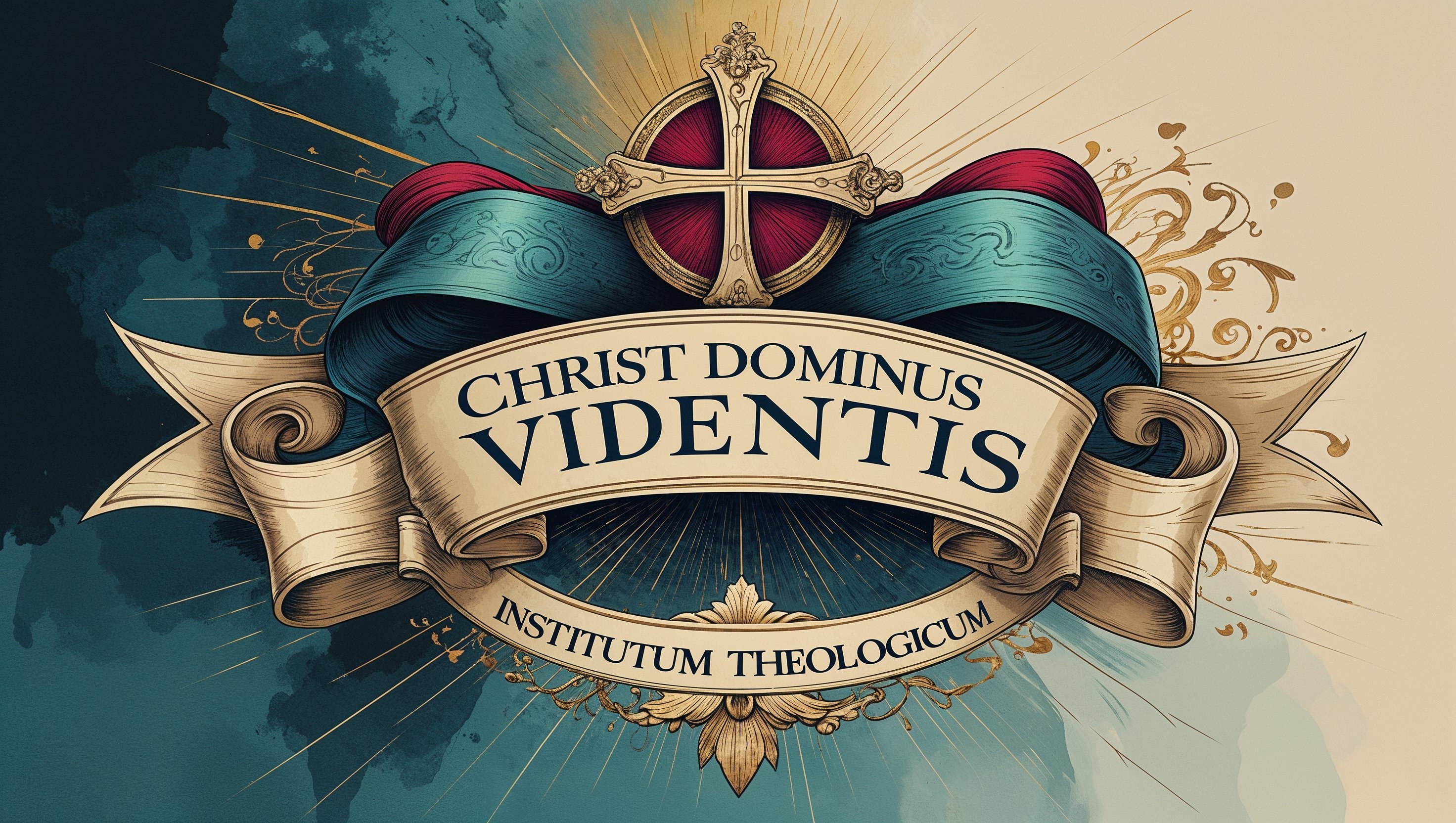
The Theologic Institute
Reinforcing what holds. Restoring what broke. Revealing the structure beneath all belief.
“It is the glory of God to conceal things, but the glory of kings is to search things out.”
Proverbs 25:2 (ESV)
The God Paradox: Completing the Prime is the founding document of The Theologic Institute. It introduces our core structural approach to Scripture, revealing how science and faith are not in conflict but misaligned by perspective. This foundational work is available free on Barnes & Noble and serves as the gateway into the Institute’s mission to restore clarity, coherence, and credibility to Christian thought. Paperback and hardback editions are available on Amazon for those who would like to support our mission; The Institute does receive a royalty from each Amazon sale.
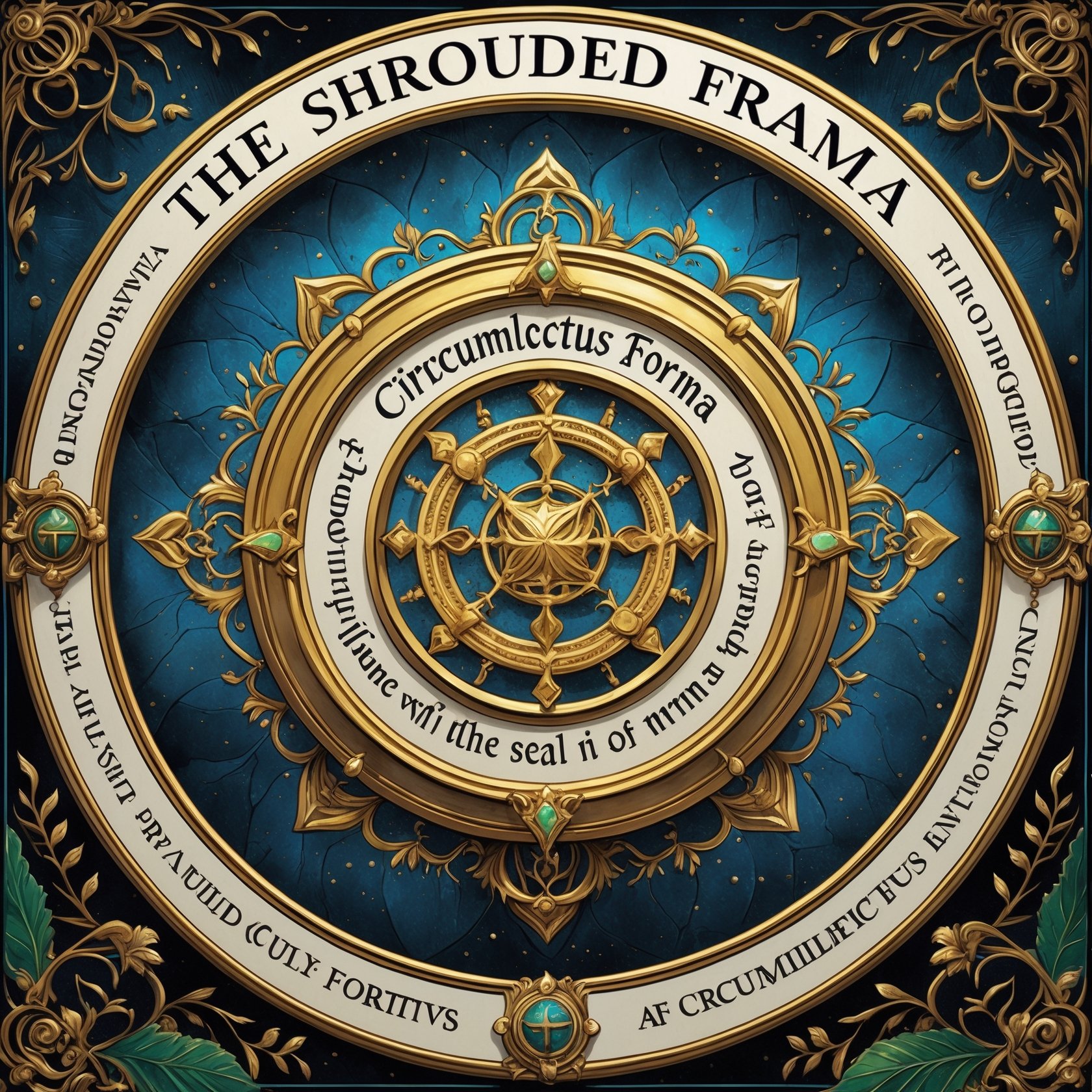
Seeker of Pattern
A quiet journey into the unseen foundations of Scripture, where hidden designs emerge from prophetic fragments and pre-covenant echoes still speak.
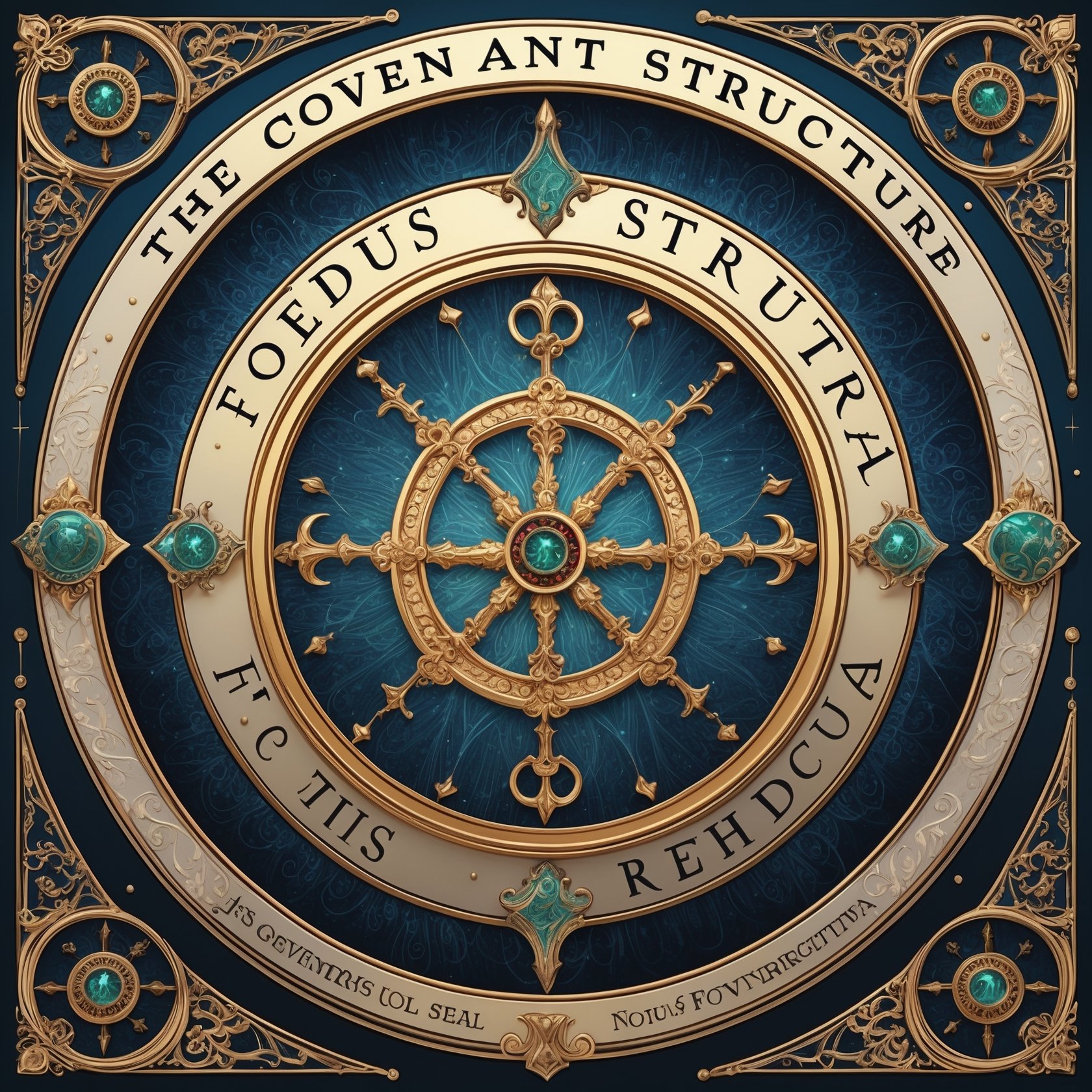
Breaker of Form
A disciplined unlearning of inherited models, restoring clarity and strength to the covenant structure tested across generations of strain and collapse.
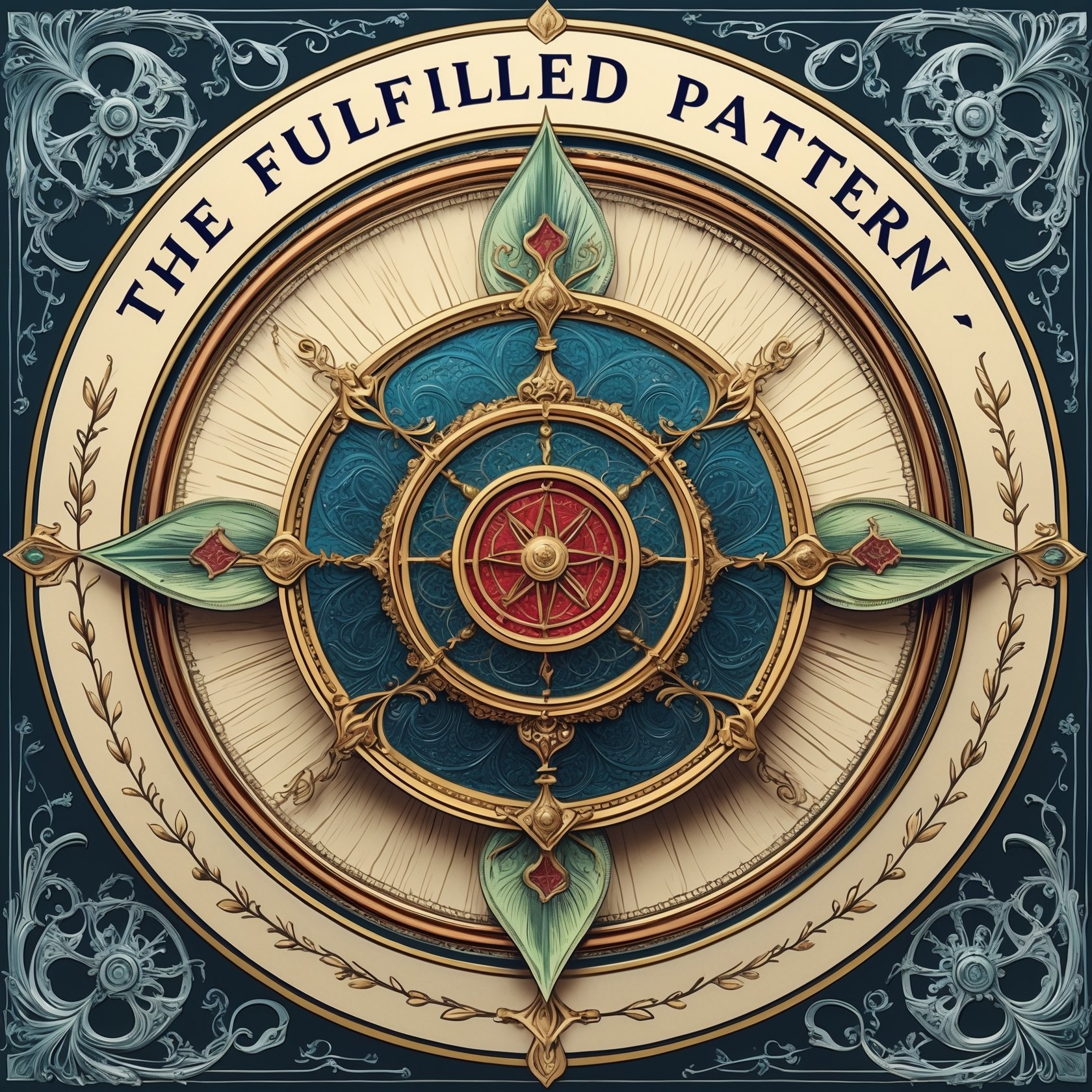
Bearer of Strain
A deeply incarnational path that reveals Christ’s architecture from within, where suffering aligns with structure and redemption takes a clearly visible form.
Our Mission

“According to God’s grace that was given to me, I have laid a foundation as a skilled master builder, and another builds on it. But each one is to be careful how he builds on it.”
1 Corinthians 3:10 (CSB)
Every teaching rests on the foundation of Christ. What is built on that foundation varies, and not all of it holds. The Theologic Institute exists to examine the structures that have been added over time, not to question Scripture, but to ensure what has been built truly aligns with it.
We do not add doctrine. We do not reinterpret belief. We trace what is already there and evaluate whether it can bear the weight of faith, practice, and discipleship. Our role is to support theology by reinforcing its structural integrity.
Many academic institutions have moved away from this responsibility.
In some cases, they have become openly hostile to those who seek clarity and endurance in the systems they uphold. Theologians and apologists are often left without the structural support they need.
The Theologic Institute exists to meet that need. We train individuals to assess whether theological systems can endure under real pressure, to identify points of strain or collapse, and to restore alignment wherever it has quietly failed.
This is not theory. It is structural theology, grounded in Scripture and built for endurance.
We are here to help carry what must hold.

Institutional Values
The Theologic Institute does not operate on aspirational slogans. Our values are structural mandates. Each one is grounded in Scripture and forms part of the training students receive. These are not ideas we admire. They are standards we enforce.
Formation exacts no monetary cost: no tuition, no fees, every required text freely provided in digital form.
The only price is the irreversible inversion of vantage and the uncompromising time it truly demands: currency that cannot be bought or sold.
Integrity of Form
We do not preserve traditions because they are old, or sentiments because they feel right. We test what holds. Right belief is not enough if the structure behind it cannot endure.
“Everyone who hears these words of mine and acts on them will be like a wise man who built his house on the rock... but everyone who hears these words of mine and doesn’t act on them will be like a foolish man who built his house on the sand.”
— Matthew 7:24–27 (CSB)
Alignment Before Eloquence
We prioritize structural accuracy over stylistic impact. Beauty in language means nothing if the form underneath it cannot carry weight. Our students are trained to trace tension and resolve alignment—not to impress.
“And my speech and my preaching was not with enticing words of man’s wisdom, but in demonstration of the Spirit and of power.”
— 1 Corinthians 2:4 (KJV)
Authority Belongs to the Blueprint
No system is legitimate unless it aligns with Scripture’s structural logic. Our students learn to verify theological claims by testing them against the weight-bearing design laid out in the Word.
“All Scripture is breathed out by God and profitable for teaching, for reproof, for correction, and for training in righteousness...”
— 2 Timothy 3:16–17 (ESV)
Collapse Must Be Named
We do not fear failure. We fear failure hidden behind form. The Theologic is trained to identify structural weakness and name collapse when others avoid it. This is not rebellion. It is mercy.
“Say unto them which daub it with untempered morter, that it shall fall...”
— Ezekiel 13:11 (KJV)
Restoration Is the Final Purpose
We do not expose systems to destroy them. We expose them to repair what was allowed to fail. The goal is never critique for its own sake. It is to rebuild with clarity and care.
“Your people will rebuild the ancient ruins and will raise up the age-old foundations...”
— Isaiah 58:12 (NIV)

Student Identity
At The Theologic Institute, identity is not claimed. It is revealed through alignment and tested under strain. Every title reflects a structural position within a journey that does not move forward, but deepens inward. Students are not given authority. They are placed inside responsibility.
Entry Vantages
The Three Initiate Paths
Each path begins with a unique way of seeing. These vantages do not define a student’s beliefs. They mark where the strain first touched them.
Candidate of Pattern
The student begins to perceive structure beneath distortion. They are drawn to what lies just beneath the surface, waiting to be traced.
Initiate of Structure
The student willingly lets go of inherited models. They are called to test the frame, not out of doubt, but out of reverence.
Witness of the Bond
The student feels the pressure before they understand its source. They are caught between fracture and connection, learning to stay under tension.
Formation Rings
The Three Structural Transformations
Progress in Theologic formation does not elevate. It reorients. These rings mark increasing levels of structural responsibility and inner alignment.
Theologic Observer
The student sees fracture clearly. They trace tension others overlook and begin to read failure not as error, but as signal.
Theologic Architect
The student begins to rebuild from within. They place what holds, remove what doesn’t, and take responsibility.
Master Theologic
The student becomes a living point of endurance. They do not speak to be heard. They remain in position so others do not collapse.

Doctrinal Boundary
The Theologic Institute does not define doctrine. It does not promote denominational systems or offer new theological positions. It exists to support what already exists by providing the structural foundation theologians and apologists need to stand with clarity and endurance.
This is the role academic institutions were originally meant to fulfill. Their task was to uphold the structural integrity of theology, to equip those defending truth with the frameworks needed to endure. But many have abandoned that role. In some cases, they have become openly hostile to the very foundations they once protected.
Today, secular universities are often the best-funded platforms working to convince people that Scripture is wrong, incoherent, or unnecessary. They do not offer correction. They offer corrosion. And those tasked with defending truth are often left to do so without structural support.
The Theologic Institute was created to meet that need. We are not here to debate. We are not here to create new doctrine. We are here to provide the technical foundation that should have already been built. We examine theological systems, not to challenge belief, but to ensure that what is believed can stand.
We do not reinterpret Scripture. We test the structures built around it. We reinforce what aligns, identify what strains, and repair what has silently failed. This is not philosophy. It is structural analysis in service of truth.
We recognize the Lord Jesus Christ as the one foundation for all faith and doctrine.
"For no one can lay any foundation other than what has been laid down. That foundation is Jesus Christ."
(1 Corinthians 3:11, CSB)
We affirm the full authority of Scripture as the system within which all truth must be tested.
"All Scripture is breathed out by God and profitable for teaching, for reproof, for correction, and for training in righteousness."
(2 Timothy 3:16, ESV)
We do not test truth to challenge it. We test it to strengthen what is real and expose what cannot hold.
Even the earliest believers examined the Word carefully.
"...they received the word with all eagerness, examining the Scriptures daily to see if these things were so."
(Acts 17:11, ESV)
And no one—no matter their title, training, or institution—is exempt from structural testing.
"But though we, or an angel from heaven, preach any other gospel... let him be accursed."
(Galatians 1:8, KJV)
The Theologic Institute does not replace theology. It provides the foundation theology depends on. We do not compete with belief. We make sure it has the structure to survive.

Core Prayer of the Theologic
Based on the structure found in Matthew 6:9–13
The Father is the source.
All things belong to Him.
Christ is the only path that offers life.
All other choices are false.

Creed of the Theologic
This is the foundational oath of the Theologic. It is not an expression of belief. It is a structural position within the Body of Christ. It governs how we see, how we speak, and how we carry what we find.
I will never use structural sight to harm the Body of Christ.
I will never reveal collapse to impress or condemn.
I will never trace failure to elevate myself.
I will not destabilize the faithful to appear insightful.
When I see fracture, I will trace it to its source.
When collapse appears, I will name it with purpose and carry it toward repair.
When I speak, I will do so where truth and mercy are both required.
I do not belong to pride. I belong to the structure.
I do not align to correction. I align to Christ.
I do not act to be seen. I remain so others do not fall.
This oath is not a limit. It is a place to stand.
And I will not leave it.
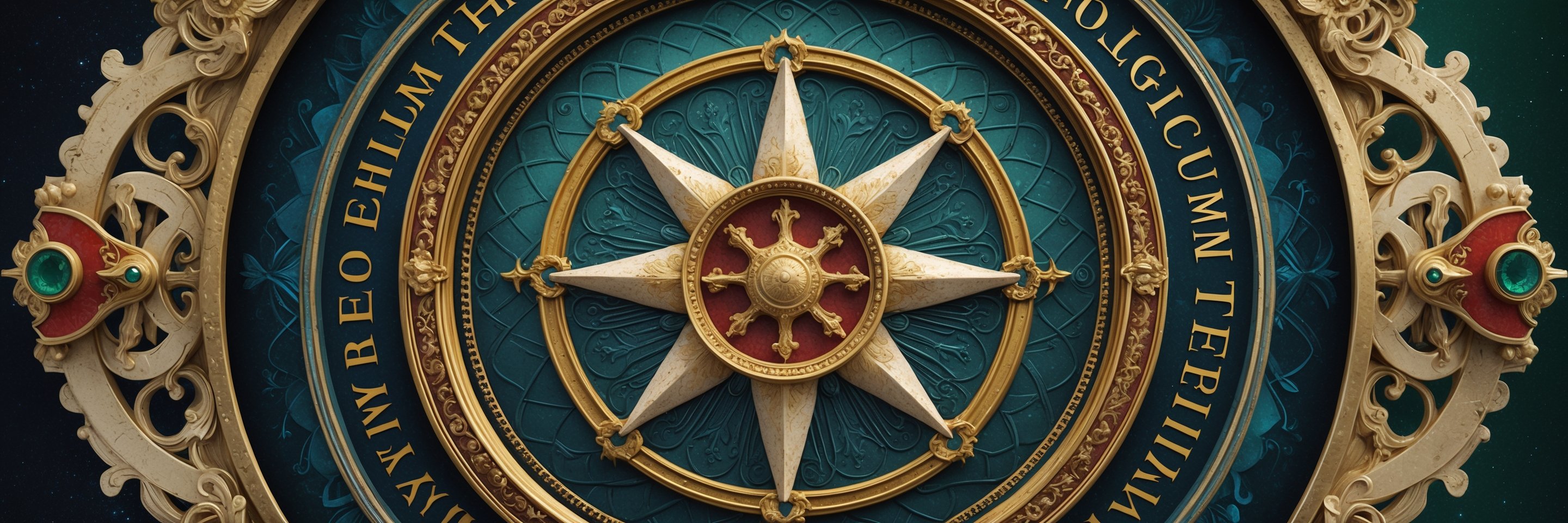
What Is a Theologic
A Theologic stands in a long line of those who carried Christianity’s structural foundation without seeking a spotlight. In the earliest centuries of the church, there was a living apprenticeship that took shape through the catechumenate. Seekers did not simply make an instant choice to convert. Rather, they entered a season of instruction that could last many months or even years, and in that time they met with a catechist who understood Scripture intimately, recognized cultural objections and philosophies of the day, and conveyed not merely individual verses but the full tapestry of Christian belief. This commitment to careful nurturing was exemplified in centers like the catechetical school of Alexandria, where figures such as Clement, Origen, and Didymus the Blind thrived. They interacted easily with Stoic, Epicurean, and Platonic thought and brought out a structural coherence in Christian teaching. The function of the catechist was to guide new believers to see not just random pieces of doctrine but a carefully aligned architecture capable of bearing the weight of real life and real questions.
Over time, especially after Constantine’s legalization of Christianity in 313, and as infant baptism replaced the practice of adult seekers undergoing long instruction, that vital apprenticeship began to fade. Advanced doctrinal study moved into universities and monasteries, and the ordinary believer met printed texts rather than personal mentors. The word catechism became a shorthand for a list of questions and answers, rather than a model of sustained interpersonal engagement. Yet the original purpose never died. Although many academic institutions sought visibility and renown for themselves, focusing more on public influence than on the hidden infrastructure of theology, the need for a structural guide always remained. Christian thought was never meant to be just a patchwork of quotations. It was intended to be an interconnected system resting on strong conceptual beams that would resist stress and hold firm under scrutiny.
In the modern era, we see again how much confusion arises from fragmentation and from what might be called micro views of scriptural lines. People encounter a massive variety of opinions and interpretations, each vying for attention. Emotions run high, and the conversation can get lost in endless debates. There is also a growing population of logical and engineering-minded individuals who look at these scattered bits of argument and wonder if there is a sound framework holding everything together. In the flurry of digital discourse, the church sometimes overlooks the fact that pattern recognition is second nature to many readers. A generation fluent in data streams and feedback loops can quickly notice that arguments collapse if they lack coherence. Merely quoting a single verse or string of verses for every question rarely satisfies such an audience. Instead, what resonates is a well-formed, clearly articulated structure that reveals how each part of Scripture supports and clarifies the others.
We call the person who makes that clarity visible a Theologic. This is not a pastor, nor a public-facing theologian, nor a charismatic figure building a personal platform. The calling of a Theologic is to step out of the spotlight and into the frame, to assume a responsibility that is structural in nature rather than purely doctrinal or inspirational. The Theologic provides the skeleton on which theology can safely rest, analyzing how doctrines and texts interlock, how roles and responsibilities are meant to be distributed, and whether these elements can bear the weight claimed of them. This role is sometimes unseen, just like how software architects often work behind the scenes, ensuring that the code base is solid and that the user experience is stable, yet never appearing at the forefront of the product demonstration. A Theologic is not there to publish commentaries that provoke argument or to wave a banner in the public square. Instead, the Theologic examines fundamental questions. Where is strain accumulating in the system of beliefs. What happens if one piece is removed or misunderstood. Why does a theological framework collapse under certain pressures, and who ends up carrying the load when the system fails.
This structural work is reminiscent of the old catechist approach, yet it has evolved. Instead of focusing on line by line instruction for new believers, or relying heavily on micro views of individual verses, the Theologic spots patterns that the modern mind is already primed to observe. Scripture is not only a set of truths; it is also an architecture. The text is laced with parallel structures, literary mirrors, covenantal patterns, and repeated motifs that bind it together into a cohesive whole. By calling attention to these structures, the Theologic can engage people who may have a skeptical or engineering mindset. When someone who is used to analyzing load paths or dependencies in a technical project sees that the biblical narrative has a similar complexity and internal logic, that person may be more inclined to consider its claims seriously. In this sense, the discipline extends an invitation rather than issuing a demand for immediate agreement.
The Theologic Institute embodies this approach. Its training is not aimed at producing new pastors or confessional authorities, nor does it seek to supersede the role of doctrinal councils, church faculties, or long-established creedal formulations. Instead, it focuses on a capacity that was once found in the best academic institutions: the ability to hold up the theological frame so that pastors, apologists, and other leaders can carry out their calling with clarity. This capacity involves vantage analysis to assess alignment, failure cascade modeling to understand how or why spiritual communities break down, inheritance mapping to see where responsibilities or roles might have been misplaced, and logic checks for ensuring that no part of theology is bearing more pressure than it should. When an institution or a congregation fractures, it is often because no one has taken the time to see where stress accumulates or where an imbalance might threaten to splinter the whole system. People sometimes become enthralled by speaking louder, proclaiming more, and chasing short-term attention. By contrast, the Theologic’s role is to analyze, document, and strengthen the underlying structure.
In a culture saturated with micro opinions and rapidly shifting sentiments, the Theologic stands for a return to something ancient and stable. We do claim authority in this space because we are rooted in the tradition that once gave rise to the catechetical schools and the systematic formation of believers. Yet we do not simply replicate that pattern from centuries ago. The landscape has changed, and the conversation now includes atheists, seekers, and the many who hold a secular or technological worldview. By looking at Scripture as architecture, the Theologic offers an approach that neither trivializes the emotional dimension of faith nor depends solely on it. We acknowledge that countless outlets and speakers already present the more personal or devotional aspects of Christianity. The missing link for many is structural coherence. They want to see if the beliefs hold up under analysis, if there is a unifying logic that spans from Genesis to Revelation, and if that logic can withstand the modern critiques that treat the Bible as outdated or contradictory.
Since the data age presents a constant stream of information, genuine clarity means more than feeding people isolated facts. It requires showing them how these facts connect. In Scripture we see mirrored patterns, such as how the days of creation in Genesis match in a paired sequence, how certain covenantal themes recur in prophetic texts, and how exodus language appears in new forms in apocalyptic writings. These connections point to a deeper architecture, as if the biblical authors wrote with an understanding of load distribution across many centuries and multiple genres. The Theologic helps highlight these patterns. We do not erase doctrine or replace theology, but we show how the pieces interlock so that anyone who examines them carefully can see the underlying structure.
It is often said that the Bible speaks to the heart. That remains true, yet there is also a sense in which the language of Scripture is advanced technology. It encodes timeless truths in a textual form that transcends cultural changes, political movements, and waves of philosophical thought. By calling it advanced technology, we mean that it is intricately and intelligently woven, a model of conceptual engineering so robust that it has carried countless generations. For a modern logical mind that wants to see the blueprint, this perspective can be transformative. Instead of an emotional appeal or a simplistic portrayal of Jesus as a life coach, we offer a system that can be probed, mapped, tested, and verified. Once a person recognizes the architecture, the door opens for them to hear what theologians have said all along about salvation, redemption, and the kingdom of God, now with a frame that makes intellectual sense.
We also acknowledge that our mission began as a response to a specific gap left by many academic institutions. The role once played by those who stood behind the scenes, ensuring that theology was consistent, has in many places been supplanted by the pursuit of visibility. Institutions that were meant to support the church’s thought-life often became more concerned with publishing, debating, or promoting their own programs. By contrast, the Theologic Institute intentionally steps away from the spotlight. Our aim is not to overshadow the work of pastors or theologians, but to reestablish the structural base they need, just as the catechumenate once did in a more intimate setting. Over time, our goal has broadened. We now serve not just those who actively shape theology from the inside, but also people outside the church who want to see how Christian thought is organized. We help participants see for themselves the models that give Christianity its continuity. That is our balance: offering a reliable foundation for those who hold formal theological positions, while also opening the door for sincere inquiry by engineers, scientists, or data analysts curious about the overall logic of the Bible.
The Theologic is not a new competitor to existing forms of Christian teaching, nor a movement designed to pull believers away from traditional worship and doctrine. Instead, it is a specialized field of analysis that complements the visible functions of preaching, writing, leading, and worshiping. Historically, we see parallels in how medieval cathedrals required master builders who understood geometry and structural principles, while others filled the cathedral with art, music, and ceremony. Both roles were essential. The Theologic is the builder, ensuring that the system aligns with its intended design and that the weight is properly distributed. It is not about shining brighter or speaking louder. It is about preventing cracks from becoming catastrophic failures.
In practical terms, our Institute guides learners to see what Scripture looks like when viewed as a designed entity. We look for lines of force and roles of responsibility. We check how doctrines influence each other and how biblical symbols recur in ways that unify rather than fracture the story. We do not rewrite key doctrines, but we test how they function. We look at real historical collapses. We ask which roles were unfilled, which responsibilities were misapplied, and why certain tensions went unnoticed until it was too late. Our effort is to keep the Body of Christ strong, not through argumentative skill but through precision in understanding.
All this is an echo of the ancient catechumenate, renewed for a time when superficial content abounds but structural insight is rare. Where the catechist once offered face to face instruction in an age when conversion was a profound and lengthy decision, the Theologic now offers a structural witness in a world flooded with quick takes and short attention spans. We are not supplanting the catechist’s care for the believer’s soul, nor are we taking over the theologian’s role of teaching doctrine and confessional statements. We are simply carrying the frame so that both devotion and doctrine can stand. If God’s truth is a light, the Theologic is the lampstand. If theology is a building, the Theologic is the load-bearing wall. We do not distort the message or claim personal acclaim. We restore what allows the message to endure.
By embracing this approach, we position ourselves deliberately between tradition and innovation. From tradition, we inherit that slow and thorough process of guiding someone to see the breadth and depth of faith. From innovation, we borrow the analytical tools that engineers, programmers, and scientists routinely use to verify complex systems. The result is a vantage where the study of Scripture becomes not a dry dogmatic exercise, nor an emotional flurry, but a consistent way of identifying alignments, patterns, and predictable points of failure. This resonates with many people who would otherwise dismiss the Bible as too contradictory or simplistic. They discover it is neither. It is a masterpiece of conceptual architecture whose authors anticipated, layered, and integrated motifs in ways that continue to astound.
Thus, when we speak of a Theologic, we are speaking of a role that both honors the church’s ancient heritage and speaks to modern minds seeking clarity. A Theologic is not an interpreter of belief in the sense of personal doctrinal spin. Rather, a Theologic is an engineer of alignment, someone whose focus is the long-term endurance and cohesion of Christian thought. While the original catechists addressed the believer in a more intimate, line by line manner, we now place greater emphasis on the structural dimension of Scripture as a way to meet the needs of a world that often thinks in diagrams, systems, and code. When theology is seen not just as a set of statements but as a living architecture, it becomes far more inviting for those who crave logical consistency. And when that consistency is visible, the message itself gains credibility.
Everything we do at the Theologic Institute is designed to protect and serve that ancient calling. We do not aspire to new doctrines or a new theology. We simply hold up what already exists and ensure its structural integrity. This is an explicit claim of authority that comes from standing in a lineage that stretches to the earliest teachers of the faith. Our mission is the same in spirit as the original catechist: to help people encounter the fullness of truth in a way that stands up to every test. We have shifted focus to models, vantage analysis, and systematic frameworks, because the theologic space has become oversaturated with micro interpretations that all seem to clash. By setting forth the architecture, we give modern inquirers a genuine approach vector that might otherwise be obscured by emotional appeals or shallow slogans. If someone is able to see how Scripture’s language functions as advanced conceptual technology, they can then begin to understand what the church has always proclaimed: that God has set in place a design which answers the deepest needs of humanity.
In the end, a Theologic carries more than a message. A Theologic carries the structure that holds that message in place. We stand as a correction to an era where visibility sometimes replaced substance. We do not preach from a stage. We serve in the frame, enabling believers and non-believers alike to see what holds the Christian witness together. By doing so, we honor the catechists of old, those who patiently walked generations through Scripture’s logic and love, and we bring forth that same mission into a technological world. Where the academic institutions once stood behind the scenes to fortify theological clarity, we now assume that mantle. The story has not changed. The structures remain to be revealed, tested, and strengthened. And in that structural faithfulness lies a path to seeing the beauty of Scripture anew, whether one is a lifelong believer, a doubting skeptic, or a curious mind looking for coherence in an age of fragmentation.
Contact Form
If you have a contradiction, question, or unresolved structure you wish to submit for formal analysis, you may do so here. All submissions are reviewed not through personal opinion, but through structural evaluation. Before submitting, consider which vantage your question may align with: the Seeker of Pattern, the Breaker of Form, or the Bearer of Strain. Each represents a different path of approach—and each leads inward.
The Candidate of Pattern begins in the hidden foundations. This path explores ancient and ancillary texts, uncovering how true alignment with divine structure is revealed.
The Initiate of Structure enters through the Old Testament, specializing in covenant architecture and tracing the endurance of revealed design through generations.
The Witness of the Bond steps into the New Testament and the incarnated pattern, mastering how Christ’s structure carries redemption through pressure, fracture, and fulfillment.
Thank you for getting in touch!
One of our colleagues will get back to you shortly.
Have a great day!